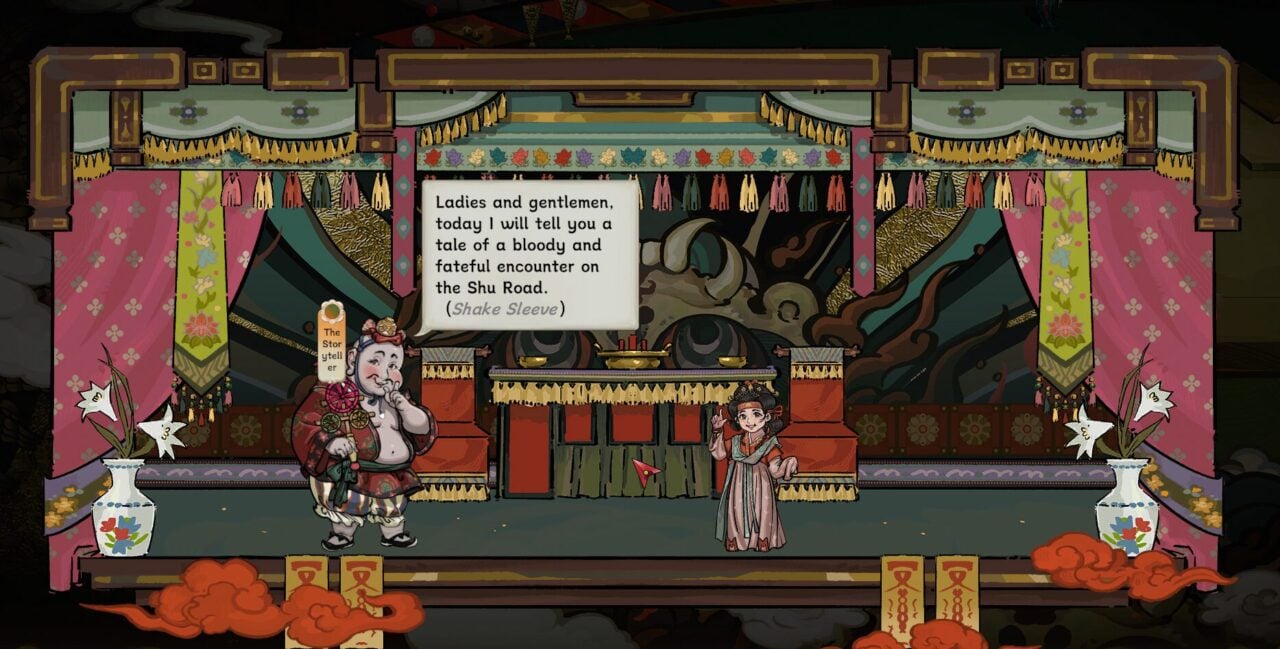
《Sin and Love》 (Chinese: 长安:石之舞), a roguelike action game developed by Xingcai Studio, published by Qooland Games, which is officially launching its global beta on steam today with regional releases across Asia, Europe, and US to follow. Branded as a fusion of “Tang Dynasty legends × hypnotic audiovisuals × soul-bargaining gameplay,” this indie title has already ignited fervent discussions amongplayers during its playtest phase for its revolutionary integration of roguelike combat and theatrical storytelling.
Sin and Love can be purchased via its official Steam page. The game currently sits on “Mostly Positive”.

During Steam Next Fest in Feb, players commented the game on “striking a rare balance between roguelike combat thrills and immersive narrative,” with its bold reinterpretation of traditional Chinese culture setting it apart in the single-player roguelike arena.
Rooted in meticulous historical research, the game follows the “mirror rebirth” of Princess Zhenzhu of the lost kingdom of ZheZhi, weaving a narrative where “every battle is self-dissection.” Each enemy encountered in the ancient mirror’s illusion embodies fragments of the princess’s memories: armored warlords manifest childhood traumas, while western region cultists symbolize betrayers. The game’s signature “theatrical combat interludes” trigger stage-worthy cutscenes upon defeating bosses: ink-wash shadow puppets erupt across the battlefield, NPCs chant plot twists in operatic cadence, and long-dead figures resurrect through song and verse.
Through Chat and Anecdotes, players collect memory fragments to unlock hidden lore. A seemingly ordinary spearman might drop The Secret History of ZheZhi, revealing truths of the fallen kingdom, while Life Ashes scattered in battle trigger “Memory Retrospect” sequences—immersive flashbacks exposing tragic details of the princess’s demise. In essence, each level is less a combat challenge than an interactive Tang Dynasty folktale.

The game employs non-linear storytelling, ensuring players piece together divergent perspectives based on collected fragments. Choices are tracked in the Memories system and dynamically shape the Book of Fate, which defines the protagonist’s personality traits and stat growth. These traits further synergize with skill builds, seamlessly merging narrative and combat. Every decision culminates in distinct endings, empowering players to reshape the game’s world through their actions.

Beyond basic attacks, dash moves, and ultimate skills, the game revolutionizes roguelike conventions with its Soul and Sense Build System. By channeling opera masks of figures like Li Chunfeng or Guan Yu, players reforge their “souls” to enchant attacks, dashes, and talisman throws with elemental effects. The seven elemental affinities—Thunder (mobility), Wind (crit), Water (sustain), Wood (control), Fire (damage), and more—demand strategic adaptation to enemy weaknesses. Stacking elemental souls unlocks devastating matrix skills.

The Moon Phase system further intertwines narrative and combat. Shifting lunar cycles activate modes like Moonlit Introspection, Night of a Hundred Demons, or Kucha’s Flaming Night, while Moon Shadow Divination lets players use tortoise-shell divination to alter boss abilities. Rebellious players may even refine monster souls from remains to defy fate, with all choices converging into a singular path of rebirth.
The game’s art direction reimagines Tang Dynasty grandeur through a surreal lens: UI elements mimic handcrafted porcelain, boss arenas evoke the ancient city of Kucha, and enemy attack patterns borrow motifs from Dunhuang murals. NPCs morph between courtly elegance and blood-stained ritual masks, blending Court Ladies Adorning Their Hair with Ten Kings of Hell into grotesque splendor.
From the underworld’s river of oblivion to the neon-lit streets of Chang’an, every scene teems with cultural nuance: scholars moonlight as vigilantes, Silk Road caravans echo with camel bells, and historical figures mingle with commoners in a cyberpunk-infused Tang utopia.
Defying expectations of classical Tang music, the soundtrack fuses Mongolian throat-singing with industrial electronics. Pipa riffs collide with 808 bass drops, while boss-kill moments trigger shamanic chants sampled from Tang-era exorcism rites. Even the princess’s descent into madness scores not with melancholic flutes, but a vocoder-twisted remix of The Emperor’s Battle Array, where bronze chimes clash with glitchy beats—a sonic metaphor for her fractured psyche.
As players poeticize their vengeance while tearing through foes, one truth becomes clear: this is no mere tale of royal revenge, but a millennial rave atop the rooftops of Chang’an.
Sin and Love is now live on Steam as of 10:00 AM (GMT+8) on May 24. Embark on this unhinged journey where poetry meets carnage in a phantasmagoric Tang Dynasty.
For more information on Sin and Love, visit the official Steam page. The game currently sits on “Mostly Positive”.
